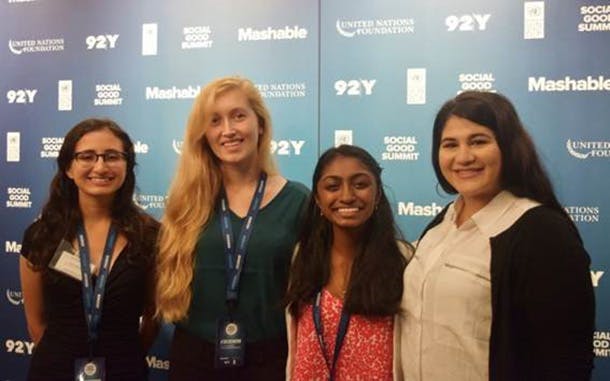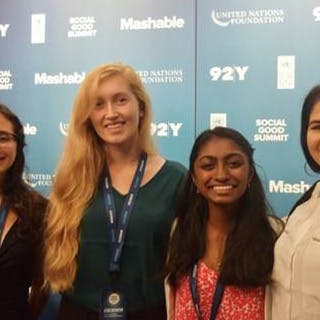
*This blog post has been authored by the Universal Access Project’s “Why We Care” Youth Champions Rawan Masri, Ariel Wood, and Nivedha Kannapadi.
Imagine a 9-year-old girl living in a family of six under the poverty line. She excels in school and spends her days dreaming of becoming a building designer. Shortly after the birth of her baby brother, her mother becomes very sick and is bedridden. The young girl is asked to stay home from school to take care of her siblings and do the housework. Every day of school that she misses, she feels her aspirations of becoming an architect slip. She knows she will have to marry soon, and soon after, have her first child. She realizes the chances of achieving her dream are becoming smaller as she becomes a wife and mother.
This story, although fictional, is not uncommon. One in three girls in developing countries are married before the age of 18. One hundred twenty million girls worldwide have experienced sexual violence in their lives. Thirty-four million female adolescents are out of school. Eight hundred women die every day due to a preventable pregnancy-related cause. And 225 million girls and women around the world who want to delay, prevent, or plan their next pregnancy aren’t using effective contraception due to a variety of barriers.Despite these heartbreaking stories and tragic statistics, we have the unique and unprecedented opportunity to see the lives of these girls and women transformed.
As Why We Care Youth Champions who are personally passionate about these issues we traveled to New York City during the UN General Assembly to witness the adoption of the 2015 Sustainable Development Goals, a global development agenda which prioritizes sexual and reproductive health and reproductive rights. We soon realized that increased access to family planning not only advances the sexual and reproductive rights of girls and women worldwide, but it is crucial for the success of all of the global goals. With access to sexual and reproductive health care, including family planning information and services, girls are healthier, can stay in school longer, have better job opportunities, and are better able to achieve economic independence.
Subsequently, their communities and their countries prosper. On Human Rights Day, we are reminded that we cannot curtail the aspirations of the world’s 600 million girls; we must provide them with the information and the tools to control their own bodies and their own futures.
The adoption of the new global goals and the prioritization of these issues signals a strong global commitment to the health and rights of women and girls. However, we still have more work ahead of us. As youth advocates, we ask you to join us in using our collective voices and stories to work toward a world where access to family planning is a fundamental human right.

